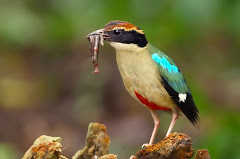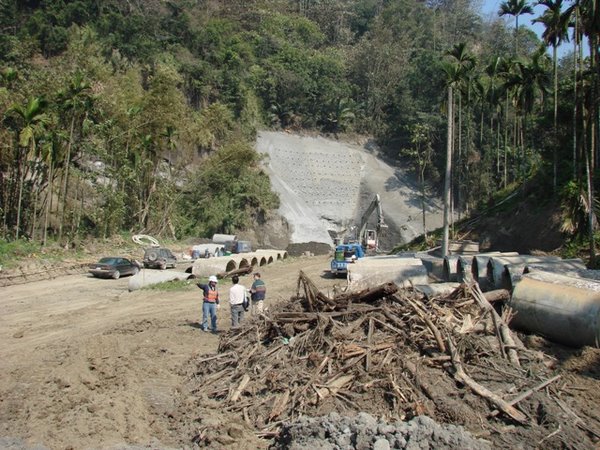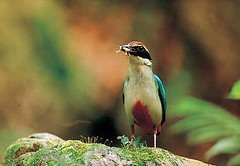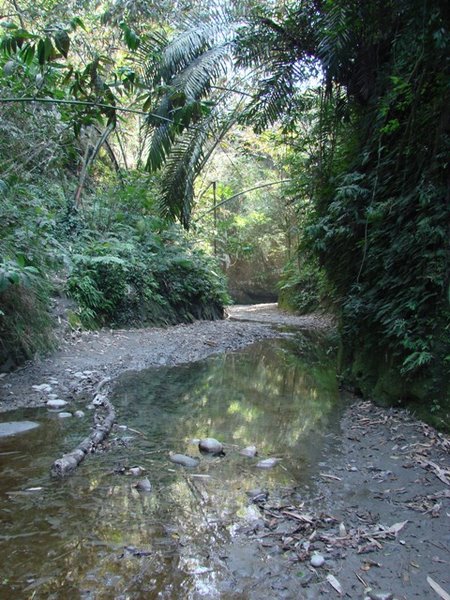Birdwatching tourism and other forms of ecotourism offer many people in rural communities such as Huben and Hushan a means of employment and an incentive to conserve the natural resources in and around their communities. The recent Conference for Birdwatching Tourism in Taiwan aimed to help develop birdwatching tourism in Taiwan.
The first Conference for Birdwatching Tourism in Taiwan was held in Taipei from 5th - 7th June 2009. The conference was organised and hosted by the Chinese Wild Bird Federation. The conference was aimed at developing birdwatching tourism in Taiwan and several international speakers delivered presentations on birdwatching tourism tourism development in their respective countries. International speakers were from the UK, South Africa, Hong Kong, Malaysia, Thailand, the Philippines and Japan. Local tourism and birding experts also delivered presentations. Taiwan Wild at Heart Legal Defense Association's Mark Wilkie spoke on the Potential for Birdwatching Tourism in Taiwan (see abstract below). Mark feels "The conference was really very informative. A tremendous amount of knowledge and information has been shared. This was a very successful first conference and I hope we'll have more of these in the future. Well done to Charles Chen, Victor Yu and all the folks at the Chinese Wild Bird Federation for putting this together." Mark is a Taiwan-based conservationist and birder. He speaks and lectures internationally on Taiwan's birds and their conservation. He serves as a moderator on Birdforum the net's largest international online birding community and wrote and co-produced the soon to be screened documentary Tomb Raptor for National Geographic Channel. Tomb Raptor will premiere on National Geographic Channel Taiwan on July 12th before being shown on NGC internationally in 164 countries. 
Taiwan’s Birding Tourism Potential
Mark B. Wilkie,
Wild at Heart Legal Defense Association,
12F. 86 Chongcing South Road Section 1,
Taipei,
10045,
Taiwan
Abstract
Thrust upward from the depths of the western Pacific two million years ago, the mountainous island of Taiwan has been described as the Asian Galapagos by some. While the real merits of such a description are open to debate; it cannot be denied that Taiwan is undoubtedly one of the most naturally diverse wonderlands on the planet.
The natural beauty of Taiwan inspired early mariners to name her “Ilha Formosa” or Beautiful Island. Starting with the writings of British naturalist Robert Swinhoe in the early 1860s the small island of Taiwan enjoyed the disproportionate attention of many Victorian and early Edwardian naturalists who were understandably fascinated by her staggering diversity and natural treasures. Journals like the Ibis devoted considerable space to Taiwan’s avian wonders. For sixty years Formosa dazzled Western naturalists with her bounty. Then, as the mists of the imperial political struggles of the day engulfed and isolated her, she was forgotten about.
Starting in the late 60s as a trickle of both foreign and local interest in Taiwan’s birds, a small but steady birding foundation was laid. Interest in Taiwan’s birds has grown considerably over the past decade but Taiwan still has yet to really make its mark on the main Asian birding tour circuit as a must-visit-destination.
With over 560 species having been recorded in and around Taiwan and her offshore islands; BirdLife International and the IUCN recognizing and listing 22 Taiwan endemics, and several rare and threatened migrants all on offer within an area of around just thirty-seven thousand square kilometers; Taiwan is truly a destination of almost unparalleled avian richness.
In this presentation Taiwan’s potential as a major birding destination on the Asian birding circuit will be discussed in the hopes that birding tourism can seen as a possible draw card for tourism and a chance for many local communities, guides and businesses to connect internationally and to develop a sustainable form of tourism and employment.
Sunday, June 28, 2009
Conference for Birdwatching Tourism in Taiwan
Posted by
Wild at Heart Legal Defense Association
at
10:57 AM
0
comments
![]()
Subscribe to:
Posts (Atom)








